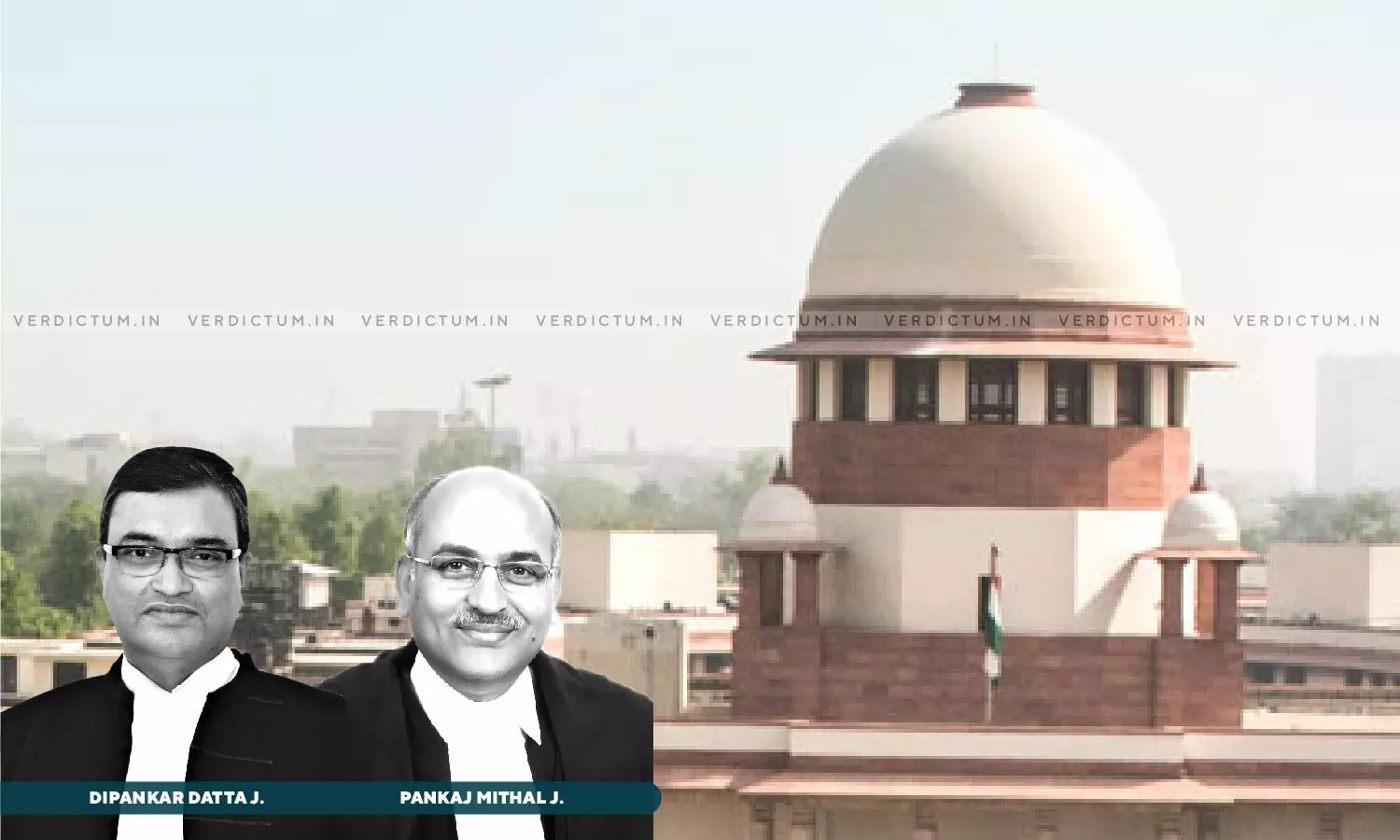
Courts Can Impound An Insufficiently Stamped Instrument Even In Absence Of Any Objection From Any Party To Proceedings: SC
 |
|The Supreme Court observed that Courts have the authority to impound an instrument even in the absence of any objection from any party to the proceedings.
The Court was hearing a Civil Appeal against the order of the Single Judge of the High Court who allowed the petition of the respondent under Article 227.
The bench of Justice Dipankar Datta and Justice Pankaj Mithal observed, “The presiding officer of a court being authorised in law to receive an instrument in evidence, is bound to give effect to the mandate of sections 33 and 34 and retains the authority to impound an instrument even in the absence of any objection from any party to the proceedings.”
Brief Facts-
In the present case, a dispute arose over a property sale, the appellant and respondent each executed sale agreements. The appellant filed a suit to declare the respondent's Sale Deed null and void, while the respondent filed a suit against the appellant's Sale Deed. During the trial, the respondent's General Power of Attorney was admitted without objection despite insufficient stamping which led to the appellant filing interlocutory applications to impound the GPA. The trial Court ruled in favour of the appellant, but the High Court overturned it while stating that the appellant should seek remedy under section 58 of the Stamp Act.
The substantial question that arose for the decision of the Court is whether upon admission of an instrument in evidence and its marking as an exhibit by a Court (despite the instrument being chargeable to duty but insufficiently stamped), such a process can be recalled by the Court in exercise of inherent powers saved by Section 151 of the CPC for the ends of justice or to prevent abuse of the process of the Court.
The Court perused Section 35 of the 1957 Act once an instrument has been admitted in evidence, then its admissibility cannot be contested at any stage of the proceedings on the ground of it not being duly stamped and any objection pertaining to the instrument’s insufficient stamping must be raised prior to its admission.
The Court mentioned the decision in Javer Chand and others v. Pukhraj Surana and quoted, “Where a question as to the admissibility of a document is raised…it has to be decided then and there when the document is tendered in evidence. Once the court, rightly or wrongly, decides to admit the document in evidence, so far as the parties are concerned, the matter is closed…The court has to judicially determine the matter as soon as the document is tendered in evidence and before it is marked as an exhibit in the case…Once a document has been admitted in evidence, as aforesaid, it is not open either to the trial court itself or to a court of appeal or revision to go behind that order. Such an order is not one of those judicial orders which are liable to be reviewed or revised by the same court or a court of superior jurisdiction.”
The Court noted that on the date the GPA was admitted in evidence and marked as an exhibit, the Trial Court did not deliberate on its admissibility, much less apply its judicial mind, resulting in an absence of judicial determination.
The Court observed, “For section 35 to come into operation, the instrument must have been “admitted in evidence” upon a judicial determination. The words “judicial determination” have to be read into section 35. Once there is such a determination, whether the determination is right or wrong cannot be examined except in the manner ordained by section 35. However, in a case of “no judicial determination”, section 35 is not attracted.”
The Court said that allowing an instrument with insufficient stamp duty to pass unchallenged, merely due to technicalities, would undermine the legislative intent and the fiscal interests of the state.
The Court further observed, “The courts ought to ensure that compliance with all substantive and procedural requirements of a statute akin to the 1957 Act are adhered to by the interested parties. This duty of the court is paramount, and any deviation would set a detrimental precedent, eroding the integrity of the legal system. Thus, the court must vigilantly prevent any circumvention of these legal obligations, ensuring due compliance and strict adherence for upholding the rule of law.”
The Court set aside the impugned order and answered the substantial question in the affirmative.
Finally, the Court allowed the Appeal.
Cause Title: G.M. SHAHUL HAMEED v. JAYANTHI R. HEGDE (Neutral Citation: 2024 INSC 493)